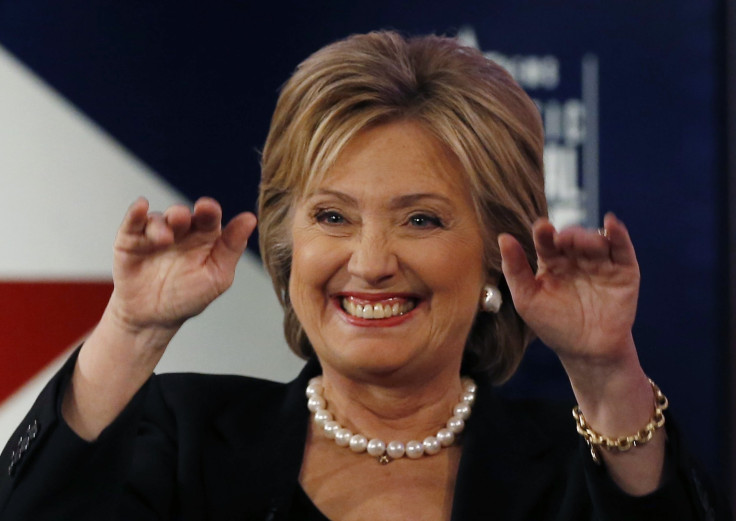Hillary Clinton Was A Top Recipient Of Wall Street Cash Before 9/11 Attacks

In the 24 hours since the Democratic presidential debate in Iowa, Hillary Clinton has faced a wave of criticism for saying the terrorist attacks of Sept. 11, 2001, somehow justified her huge haul of Wall Street campaign cash. During the key exchange, she defended her financial industry fundraising by saying, “I represented New York, and I represented New York on 9/11 when we were attacked. Where were we attacked? We were attacked in downtown Manhattan, where Wall Street is.”
“I did spend a whole lot of time and effort helping them rebuild,” continued Clinton, who took office as New York's junior senator just eight months before the attack on the World Trade Center. “That was good for New York. It was good for the economy. And it was a way to rebuke the terrorists who had attacked our country.” The former New York senator and secretary of state doubled down. “I worked closely with New Yorkers after 9/11 for my entire first term to rebuild,” she said. “And so yes, I did know people. I had a lot of folks give me donations.”
But according to an International Business Times review of federal records, Clinton was raising big campaign cash -- and her family was being paid speaking fees -- from Wall Street firms well before the 9/11 attacks.
In her 2000 U.S. Senate race, Clinton vacuumed in more than $1.1 million from the securities and investment industry, according to data compiled by the nonpartisan Center for Responsive Politics. That made her the third- largest recipient of Wall Street money of any member of Congress or congressional candidate running in that entire election cycle, which concluded 10 months before 9/11.
The securities and investment sector was Clinton’s third-largest source of campaign cash in the 2000 cycle, after lawyers and retirees. In fact, four of Clinton’s top 10 campaign donors during the election were employees from major Wall Street banks Citigroup ($105,650), Goldman Sachs ($89,920), JP Morgan ($53,750) and UBS ($53,750). On top of that, employees of Credit Suisse gave her $47,500 and employees of Bear Stearns gave her $39,400. According to CRP data, Clinton in 2000 was, out of all U.S. Senate candidates that year, the No. 2 recipient of campaign cash from employees of hedge funds, the third-largest from employees of private equity firms, the fourth-largest from employees of commercial banks and the sixth-largest from employees of mortgage bankers and brokers.
Clinton’s campaign in 2000 was also supported by the national Democratic Senatorial Campaign Committee, which raised more than $4.2 million from the finance sector that cycle. The DSCC ended up directing almost $7 million to the Democratic Committee of New York State in the 2000 election. The DSCC and Clinton campaign also set up a joint fundraising committee called New York Senate 2000. That group’s third-biggest contributor was donors from the securities and investment industry.
In the months between Clinton’s election and the 9/11 attacks, her family benefited from big speaking fees from major Wall Street banks. According to federal financial disclosure forms, Bill Clinton was paid $125,000 by Morgan Stanley Dean Witter in February 2001 -- just weeks after leaving the White House -- and was paid another $125,000 by Credit Suisse First Boston later that same month.
In March 2001, after all the Wall Street cash flowed to her campaign and family, Clinton switched her position and voted for a bill backed by the finance industry that made it harder for Americans to discharge their debts in bankruptcy court.
© Copyright IBTimes 2024. All rights reserved.












